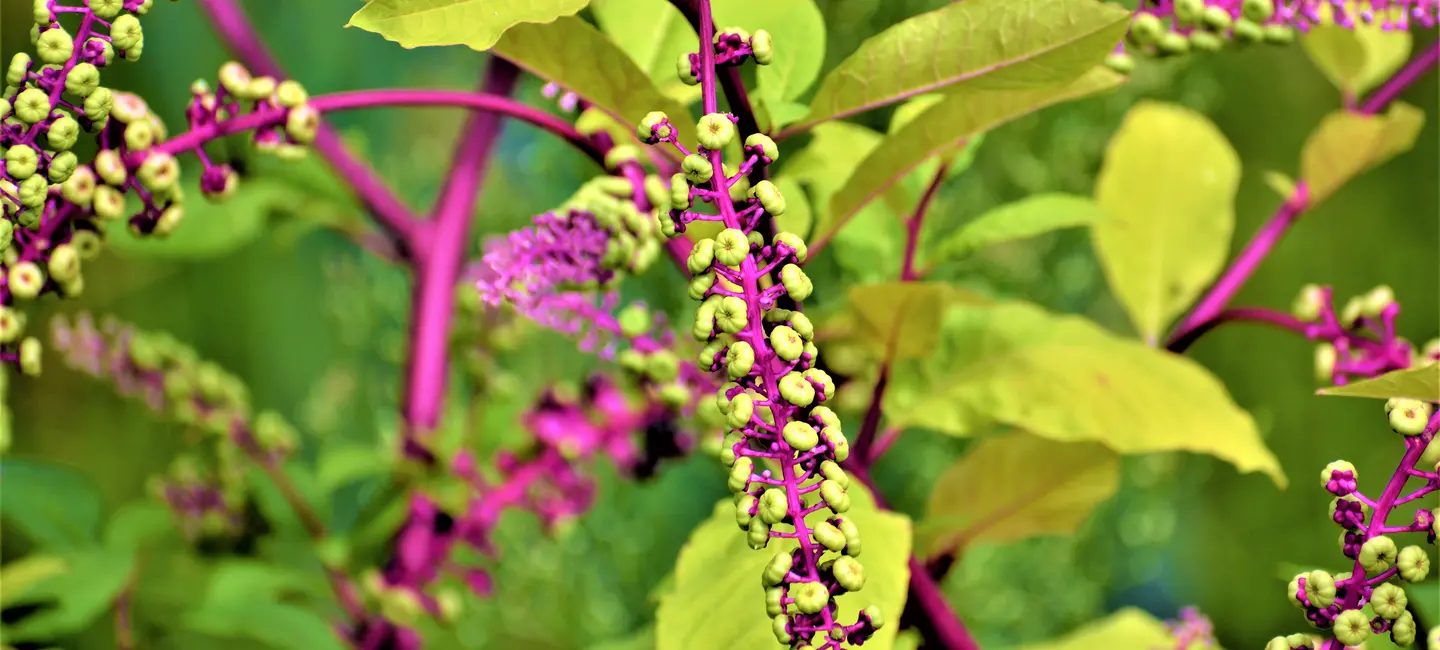
Pokeweed is a plant. The berry, root, and leaves are used as medicine.
Despite serious safety concerns, people use pokeweed for achy muscles and joints (rheumatism), swelling of the nose, throat, and chest, swollen and tender breasts (mastitis), skin infections, and many other conditions, but there is no good scientific evidence to support these uses.
In foods, pokeweed berry is used as red food coloring and as a wine coloring agent.
In manufacturing, pokeweed berry is used to make ink and dye.
Is It Effective?
NatMed Pro rates effectiveness based on scientific evidence according to the following scale: Effective, Likely Effective, Possibly Effective, Possibly Ineffective, Likely Ineffective, Ineffective, and Insufficient Evidence to Rate.
- Joint pain (rheumatism).
- Arthritis.
- Tonsillitis.
- Hoarseness (laryngitis).
- Mumps.
- Swelling of the lymph glands.
- Scabies.
- Acne.
- Skin and other cancers.
- Painful menstruation.
- Skin infections.
- Bruises and swelling.
- Other conditions.
More evidence is needed to rate the effectiveness of pokeweed for these uses.
Is it Safe?
There isn't enough information available to know how pokeweed works.
When taken by mouth: Pokeweed is LIKELY UNSAFE. All parts of the pokeweed plant, especially the root, are poisonous. Severe poisoning has been reported from drinking tea brewed from pokeweed root and pokeweed leaves. Poisoning also has resulted from drinking pokeberry wine and eating pokeberry pancakes. Eating just 10 berries can be toxic to an adult. Green berries seem to be more poisonous than mature, red berries.
Pokeweed can cause nausea, vomiting, cramping, stomach pain, diarrhea, low blood pressure, difficulty controlling urination (incontinence), thirst, and other serious side effects.
When applied to the skin: Pokeweed is LIKELY UNSAFE. Don't touch pokeweed with your bare hands. Chemicals in the plant can pass through the skin and affect the blood. If you must handle pokeweed, use protective gloves.
Special Precautions & Warnings:
It's LIKELY UNSAFE for anyone to use pokeweed. But pokeweed is especially dangerous for people with the following conditions:
Pregnancy and breast-feeding: Pokeweed is LIKELY UNSAFE to take by mouth or apply to the skin. Pokeweed berry might cause the uterus to contract and cause a miscarriage. Breast-feeding women should also avoid pokeweed.
Children: Pokeweed is UNSAFE for children. Even one berry can be poisonous to a child.
It is not known if Pokeweed interacts with any medicines. Before taking Pokeweed, talk with your healthcare professional if you take any medications.
There are no known interactions with herbs and supplements.
There are no known interactions with foods.
The appropriate dose of pokeweed depends on several factors such as the user's age, health, and several other conditions. At this time there is not enough scientific information to determine an appropriate range of doses for pokeweed. Keep in mind that natural products are not always necessarily safe and dosages can be important. Be sure to follow relevant directions on product labels and consult your pharmacist or physician or other healthcare professional before using.
American Nightshade, American Spinach, Baie de Phytolaque d'Amérique, Bear's Grape, Branching Phytolacca, Cancer Jalap, Chongras, Coakum, Coakum-Chorngras, Cokan, Crowberry, Épinard de Cayenne, Épinard des Indes, Faux Vin, Fitolaca, Garget, Herbe à la Laque, Hierba Carmin, Inkberry, Jalap, Kermesbeere, Laque, Phytolacca Berry, Phytolacca americana, Phytolacca decandra, Phytolaque Américaine, Phytolaque à Baies, Phytolaque Commun, Phytolaque d'Amérique, Pigeonberry, Pocan, Poke, Pokeweed berry, Pokeweed root, Raisin d'Amérique, Red-Ink Plant, Red Plant, Red Weed, Scoke, Skoke, Teinturier, Teinturière, Vigne de Judée, Virginian Poke.
Information on this website is for informational use only and is not intended to replace professional medical advice, diagnosis, or treatment. While evidence-based, it is not guaranteed to be error-free and is not intended to meet any particular user’s needs or requirements or to cover all possible uses, safety concerns, interactions, outcomes, or adverse effects. Always check with your doctor or other medical professional before making healthcare decisions (including taking any medication) and do not delay or disregard seeking medical advice or treatment based on any information displayed on this website.
© TRC Healthcare 2024. All rights reserved. Use and/or distribution is permitted only pursuant to a valid license or other permission from TRC Healthcare.
